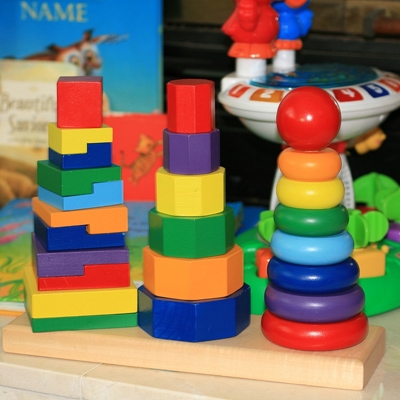Everything You Need to Know About Kids with ADHD
Attention Deficit Hyperactive Disorder (ADHD) is thought to affect around 132,000 children and young people in the UK. This isn’t counting the amount of cases that go undiagnosed.
As parents and carers we are constantly questioning our judgement when it comes to raising our children. Spotting the signs of ADHD can be tricky, especially as they are often non-specific and can be put down to a ‘phase’ of poor behaviour. But with so many people reportedly suffering from the condition, it is important to get a diagnosis and implement the necessary changes in order to make their life (and yours) easier. Here are just a few things to consider if you suspect your child may have ADHD.
What is ADHD?
ADHD is a neurological condition that affects concentration and social awareness and consequently has a big impact on a persons behaviour – so much so that ADHD is usually categorised and diagnosed through certain behavioural traits. These may include unresponsiveness, hyperactivity and poor concentration. Although there is no known definitive cause for ADHD, factors such as genetics and brain structure are thought to have some links to the symptom. People with the condition may have an imbalance of brain chemicals or slightly smaller/bigger areas of the brain in comparison to others.
When should I be worried?
The problem with recognising ADHD is that all children can exhibit some of the associated behaviours as they develop. Short attention spans, hyperactivity and impulsiveness aren’t exclusive behaviour to those with ADHD. But if the severity of their symptoms is interfering with their daily life and affecting their learning and development it might be worth looking into with a doctor or therapist. For example a child being unresponsive because they are watching a TV show or daydreaming may not be immediate cause for concern but if they are continually ‘zoned out’ then it should ring alarm bells. Similarly, all children will get hyperactive at times but if a child is persistently hyperactive to the point where they struggle to complete any given task then they may have a problem.
How is a diagnosis made?
There is no formal test that can absolutely diagnose whether an individual has ADHD. Instead they have to fit a certain criteria which involves things like displaying a set number of symptoms, showing symptoms before the age of 12 and displaying symptoms in more than one setting. Before they even get to this stage, however, a doctor will advise a period of ‘watchful waiting’ where you observe the behaviour of your child to see if it improves or worsens. A specialist may also interview and assess them for other cognitive conditions, traumas or learning difficulties.
What treatment is available
If your child has been given an ADHD diagnosis then you may be offered a combination of medication and therapy to help control and improve their behaviour. ADHD medication usually works by stimulating the areas of the brain responsible for concentration and awareness and helping to control impulses. Therapy is also a good tool for managing behaviour in those suffering from ADHD and their carers too. Cognitive behavioural therapy focuses on altering the thought processes that lead to poor behavioural while behavioural therapy is a good way for carers to learn how to reinforce good behaviour, set clear boundaries and manage negative behaviour.
How do we cope day-to-day?
On a practical level there are lots of things you can do to make your child’s life easier. It is well documented that children with ADHD benefit from routine so try to stick to rigid mealtimes, bedtimes and so on where possible. Work with your child’s teachers and other family members to ensure that you each have the same approach to dealing with bad behaviour and sticking to certain routines within their life. Understand that because their behaviour can be difficult, a lot of your child’s interactions with others can be negative and this can take its toll on their confidence and self esteem. Make it a priority to spend quality time with them every day to show them that they are loved and valued just like any other child. And don’t forget to take time out for yourself. Parenting a child with ADHD can be hard work and the best way to meet the challenges it presents is to take care of yourself too.
Article from Gemma Reynard

